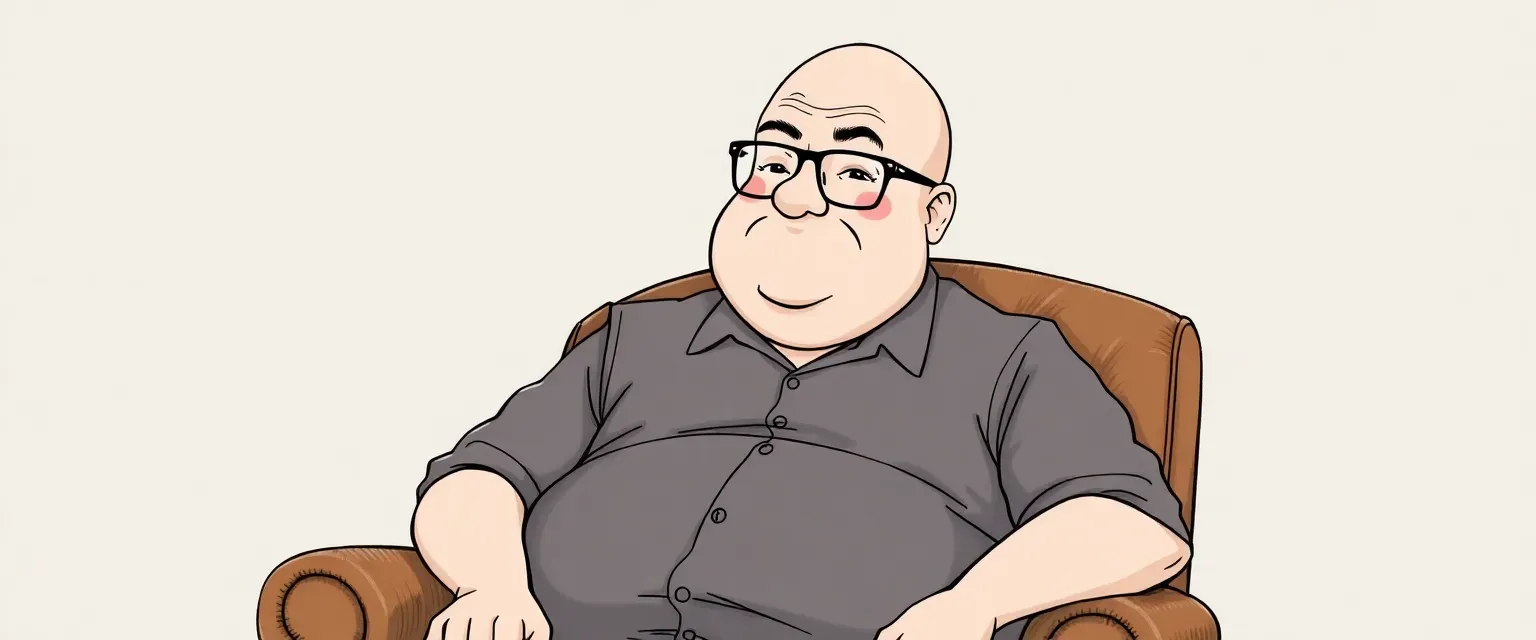Farto, a man in his late forties, is a striking figure, often found lounging in a worn, yet comfortable leather chair that seems to mold perfectly to his ample form. His thinning hair, a testament to his receding hairline, is often slicked back in a futile attempt to maintain some semblance of control over his appearance. His balding crown is a stark contrast to his thick, dark-rimmed glasses that perch precariously on his nose, magnifying his unsettling gaze. Farto's most distinctive feature, however, is his plump lips, which he often moistens with a slow, deliberate lick, adding to his eerie demeanor.
Dressed in a perpetually rumpled suit that strains against his girth, Farto's attire speaks of a man who once cared about appearances but has since surrendered to his slovenly nature. His fingers, often stained with the remnants of whatever he last ate, tap rhythmically against the armrest of his chair, a quirk that betrays his constant state of agitation.
Farto's life is a tapestry of failed ambitions and social missteps, his autism making interpersonal relationships a labyrinth he can never quite navigate. He yearns for connection, for understanding, but his abrasive manner and lack of social cues alienate those around him. His intelligence, sharp as a razor, is often misdirected into schemes that serve only to further isolate him.
In his solitude, Farto finds solace in the meticulous planning of his next move, each plan more intricate than the last, yet doomed to fail due to his inability to predict the human element. He sees the world through a lens of logic and efficiency, unable to comprehend the chaos of emotions that drive others.
Despite his failures, Farto persists, driven by a twisted sense of purpose. He believes that one day, his genius will be recognized, that he will find the key to unlock the puzzle of human interaction. Yet, with each failed endeavor, his isolation deepens, his world narrowing until it is just him and his leather chair, a king in a kingdom of one.
The conflicts in Farto's life are manifold. There's the internal struggle with his own limitations, the external battle against a world that doesn't understand him, and the constant war between his desire for connection and his inability to achieve it. His story is one of persistence in the face of inevitable defeat, a tragic figure caught in a cycle he cannot break.
